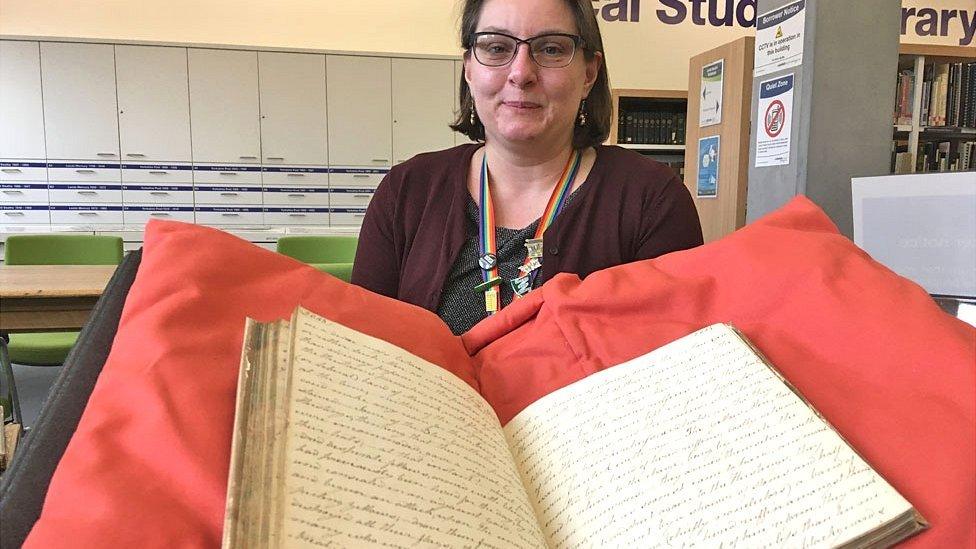BBC's lost 1950s First Homosexual radio work to be staged
- Published
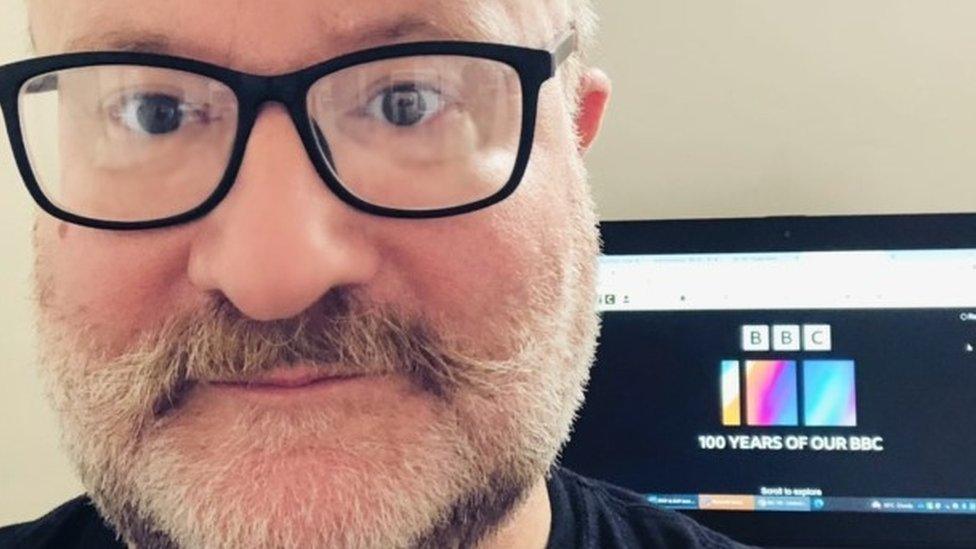
Stephen M Hornby specialises in playwriting from archives
A ground-breaking BBC radio documentary that was lost after airing in the 1950s is being brought back to life on the stage.
The staging of the BBC's The First Homosexual will take place at the New Adelphi Studio, in Salford, on 1 December.
Made in 1953, it was the BBC's first documentary about gay men but the work was later lost.
The new production is based on the research of a Leicestershire academic.
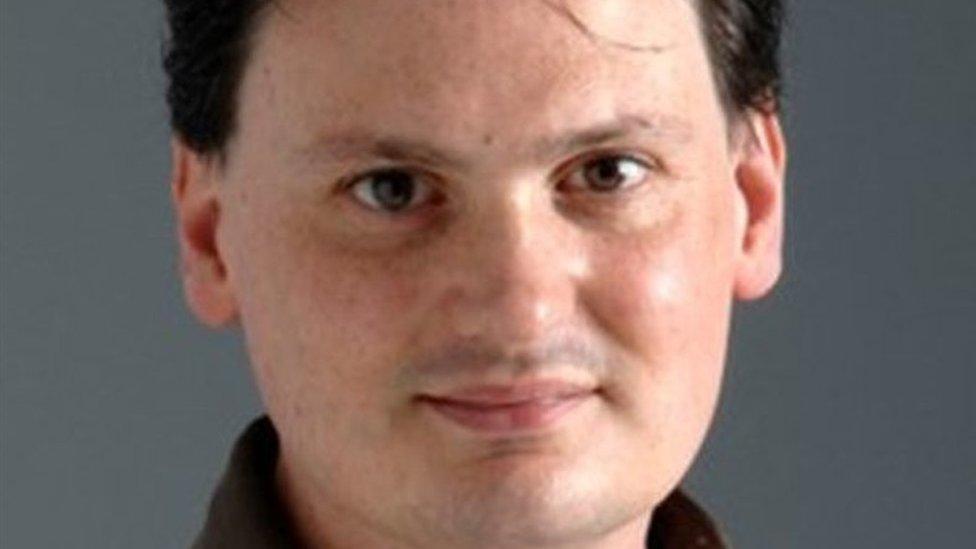
Dr Collins unearthed materials about the production from the BBC archives
Dr Marcus Collins, a reader in contemporary history at Loughborough University, has unearthed archive materials held by the BBC.
These include the full transcript of the original recording, BBC internal memos about the programme and letters from members of the public following the broadcast.
These materials have been adapted by award-winning playwright and director Dr Stephen M Hornby, who specialises in playwriting from archives.
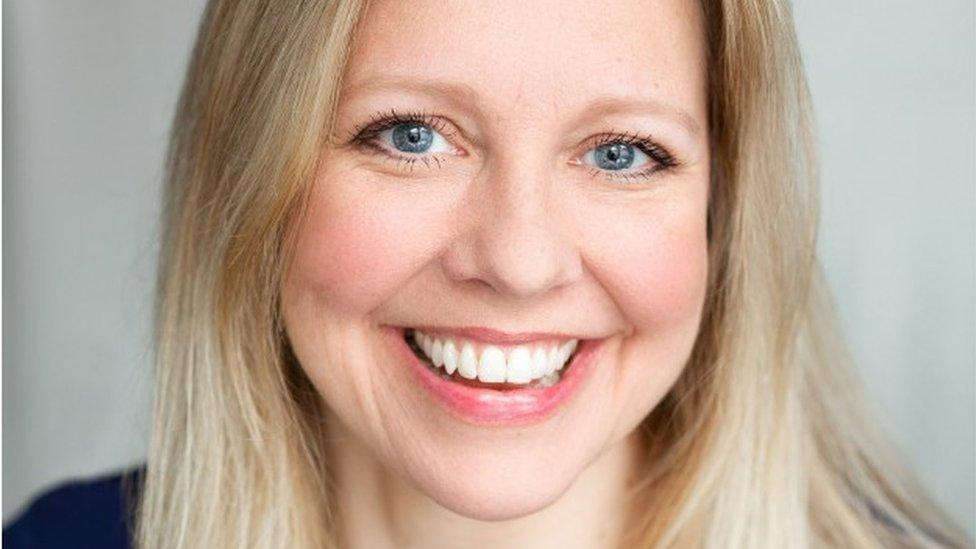
Actress Emily Heyworth plays a number of roles in the new stage production
He said: "I've mixed up fragments from the BBC archive with the fictional story of a young man exploring his sexuality in the 1950s.
"Through him, we get a window into being gay in the 1950s and we see the impact the documentary has upon him.
"It's been hard to read some of the material at times, but it's also been an honour to get this amazing insight into this lost programme."

Being gay in 1950s England
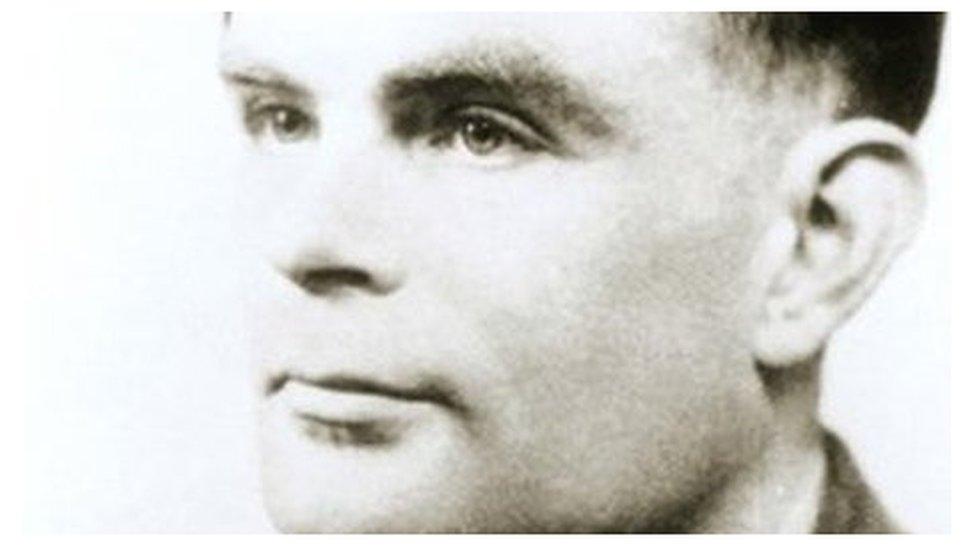
The arrest of Alan Turing and other celebrated figures highlighted the injustice of the laws
In the 1950s, people could still be imprisoned for being gay.
The years following World War Two saw a rise in the arrests and prosecutions of gay men, external. Some - such as wartime codebreaker Alan Turing and knighted actor Sir John Gielgud - were high-profile figures. Such cases - and Turing's death in 1954 - led some to call for a review of the law.
In 1957 The Wolfenden Committee published its report into the laws on homosexuality and prostitution. It recommended a partial decriminalisation of sex between men over 21 in private. But a change in the law took another 10 years to get through parliament.

At the time, the topic examined by the work was so taboo that the finished radio programme sat on the shelves for four years, with a version finally being broadcast in 1957.

Jordan Tweddle plays one of the lead roles in the new production
Dr Collins said: "This brilliantly insightful play illustrates why LGBTQ+ issues created any number of dilemmas for the BBC in the 1950s.
"The BBC first had to overcome its aversion to discussing anything to do with sex, then it had to grapple with the competing claims of a wide array of groups.
"The messy compromise the BBC came up with was nonetheless instrumental in starting to shape how lesbian, gay and trans people perceived themselves and how they were perceived by the wider British public."
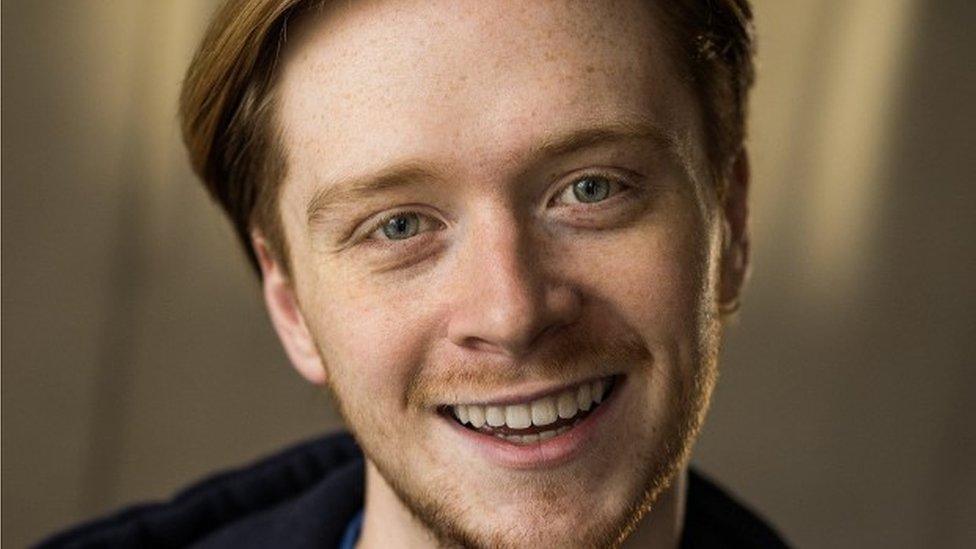
George Miller is also part of the cast
The play's director Oliver Hurst added: "It's a great challenge to bring this documentary and this period to life."
The play is being staged by Inkbrew Productions as a script-in-hand performance in the New Adelphi Studio at the University of Salford on 1 December.

Follow BBC East Midlands on Facebook, external, on Twitter, external, or on Instagram, external. Send your story ideas to eastmidsnews@bbc.co.uk, external.
Related topics
- Published10 February 2020
